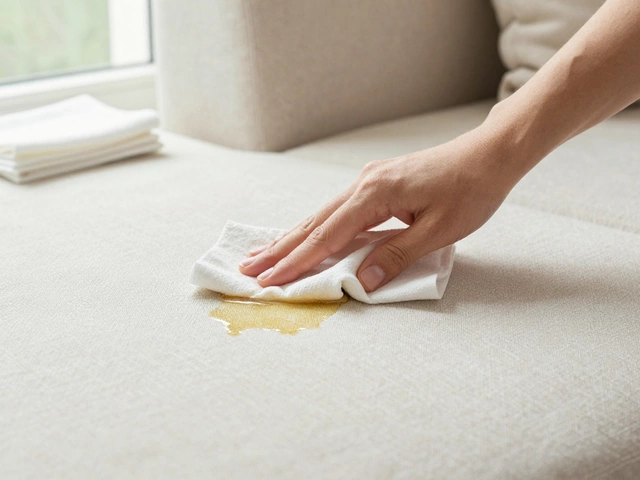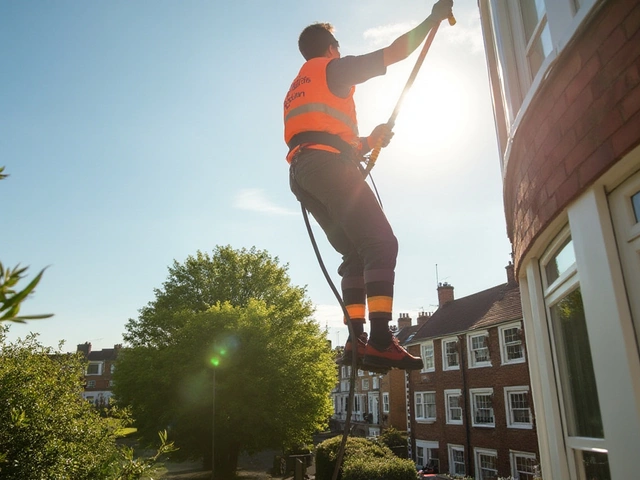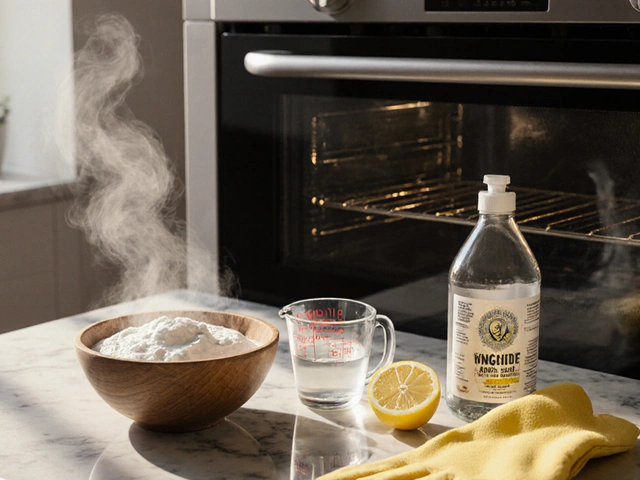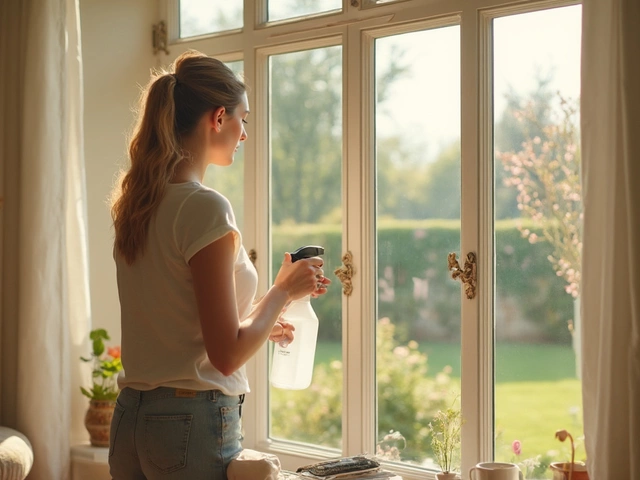Trying to find the right PSI for your pressure washer? It’s kind of like choosing the right shoe size — it has to fit the task. A pressure washer's PSI (pounds per square inch) tells you about its power. The wrong one can either be too weak for tough jobs or way too strong, potentially damaging your stuff.
Let's kick things off by talking about what PSI even means. Simply put, it's how much pressure water is coming out with. More PSI means more oomph — perfect for cleaning stuck-on grime but not so great if you just want to wash the family car without taking off the paint.
Most home tasks fall into light or medium duty. Light-duty washers, usually under 2000 PSI, are great for smaller jobs — think patio furniture or your car. Higher up, medium duty ranges from 2000 to 3000 PSI, which is ideal for fences and sidewalks. But if you're aiming to blast off chipped paint or tackle large surfaces, you’re in heavy-duty territory, needing over 3000 PSI.
- Understanding PSI
- Light-Duty Cleaning
- Medium-Duty Needs
- Heavy-Duty Jobs
- Tips for Choosing the Right PSI
Understanding PSI
Alright, so you want to get into the nitty-gritty of PSI, or pounds per square inch. It is a key factor in measuring a pressure washer's power. People often overlook it, but choosing the right one makes a huge difference. With this in mind, let's dive deeper.
What Exactly is PSI?
In simple terms, PSI measures how intense the water pressure is. The higher the number, the more power your pressure washer has to blast things away. It's vital because using too much power on delicate surfaces can cause damage, and too little can mean you're scrubbing by hand.
Why PSI Matters
Think about it: If you're cleaning the siding on your house or the grime on your deck, you want enough power to make the job easy but not so much that it causes harm. That's why understanding PSI is crucial. If you’re using a washer with under 2000 PSI, it’s ideal for light tasks like washing cars or clearing dirt from outdoor furniture.
- Under 2000 PSI: Light-duty jobs. Cars, motorcycles, grills.
- 2000-3000 PSI: Medium-duty tasks. Sidewalks, fences.
- 3000 PSI and above: Heavy-duty work. Paint prep, large areas.
PSI in Practical Use
Real-world use changes everything. For instance, if you're living in an area subject to heavy rains and mud, a higher PSI might be worth it for the patio and driveway. But if your problems are mainly pollen and dust, you can go lighter.
It's good to remember: PSI isn't the only thing to worry about. Water flow, usually measured in gallons per minute (GPM), works with the PSI to define overall washing power or cleaning units (CU). A washer with 2000 PSI and 2.0 GPM has 4000 CU, which gives a better overall perspective of cleaning capability.
Light-Duty Cleaning
When it comes to light-duty cleaning, you don’t need to go overboard with PSI. Usually, a pressure washer under 2000 PSI is perfect for tasks like rinsing patio furniture, washing your car, or hosing down your garden tools. These washers are a common choice for homeowners looking for convenient, straightforward clean-ups.
Why opt for a light-duty washer? Besides being budget-friendly, they use less water while still getting the job done, which is a win for Mother Earth and your water bill. Less power means less risk of damaging delicate surfaces, like your car's paint job or wooden surfaces that could splinter under high pressure.
Common Uses
- Car Cleaning: One of the most popular uses. Light pressure keeps your paint and windows safe.
- Outdoor Furniture: Quickly removes dust and light dirt without damaging finishes.
- Grill Cleaning: It can effectively remove grease and food residues post-BBQ season.
Here’s a quick comparison to see how a light-duty washer stacks up:
| Task | Recommended PSI |
|---|---|
| Car Washing | 1200 - 1900 PSI |
| Patio Furniture | 1500 - 1900 PSI |
| Mildew Removal | 1800 PSI |
Remember, no need to max out the PSI dial for minor tasks; it saves energy and keeps everything intact. If you have regular outdoor chores that need occasional sprucing up, having a light-duty pressure washer in your garage is handy, practical, and simple to operate.
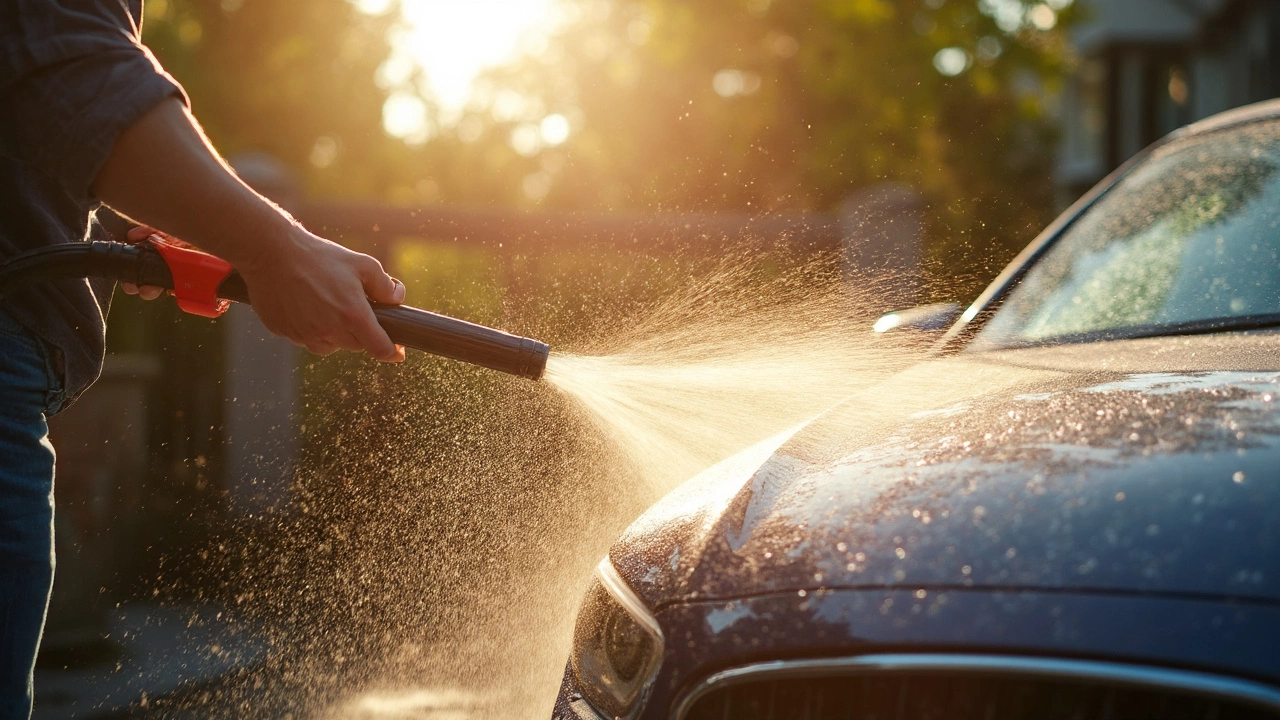
Medium-Duty Needs
When you're dealing with tasks like cleaning patios, decks, and vinyl siding, a medium-duty pressure washer is your best friend. We're talking about models that offer between 2000 and 3000 PSI. This range is the sweet spot for homeowners who have diverse cleaning requirements.
Why choose medium-duty? Well, it's all about versatility. It offers enough power to tackle grime that's stubborn but won't overdo it, keeping delicate surfaces safe. With medium power, you can efficiently clean fences, garage floors, and even remove light stains from concrete.
Versatile Applications
Medium-duty washers can handle a variety of jobs:
- Wooden Decks: The pressure is just right for cleaning without gouging the wood.
- Driveways: Removes dirt and oil stains without damaging the surface.
- House Siding: Perfect for removing mildew and built-up dirt, giving your home a fresh look.
As expert James K. Smith from Clean Tech says,
"Choosing the right PSI isn't just about power; it's about matching the power to the surface. This ensures effective cleaning without causing damage."
Let's talk numbers. Most medium-duty pressure washers dispense about 2-3 gallons per minute (GPM). This water flow rate works efficiently, balancing cleaning time with water usage.
Gas vs. Electric
You've got options, my friend! Medium-duty washers come in both gas and electric models. Gas models tend to offer more mobility and power — they don't tie you to an outlet. However, electric ones are less noisy and often easier to maintain. It all depends on your specific needs and how much elbow grease you're willing to put in.
In terms of *stats*, according to the Power Tool Institute, gas pressure washers in the medium category are chosen by over 60% of users for outdoor cleaning due to their convenience.
So, when you're about to tackle cleaning tasks that are a bit tougher, a medium-duty pressure washer is often the way to go. It provides the necessary power without being overkill, ensuring your projects are completed efficiently and safely.
Heavy-Duty Jobs
When you've got tough grime to tackle, you're going to need some serious power under your belt. We're talking about pressure washers with over 3000 PSI. This kind of power is not something you play around with lightly, but when you're setting out to thoroughly clean expansive driveways, strip paint, or deep clean a garage floor, it's just what the doctor ordered.
Stripping Paint and Removing Stains
Firstly, stripping paint is one of the most demanding jobs for pressure washers. You'll need at least 3000 PSI to effectively blast away old paint layers without much effort. Simply pointing and shooting the washer at the surface can make the paint peel away like old wallpaper. Use a rotary nozzle for the best results, as it gives you the spinning action needed to break the paint loose.
Deep Cleaning Projects
If you're dealing with really stubborn stains on concrete or preparing a surface for new paint, heavy-duty washers are perfect. These tough bad boys can tackle large scale projects like refreshing patios, driveways, or even commercial buildings. They have the gusto to clean surfaces that haven't seen a scrub brush in years. Make sure to pair your pressure washer with the right detergent to pre-treat any particularly dirty areas.
Safety Tips
Bear in mind, these power levels can cause damage if not handled with care. Always wear protective eyewear and gloves. Test out a small patch first to ensure you're not damaging the surface. Keeping kids and pets out of the immediate vicinity when working with such powerful tools is also a smart move.
When Is It Overkill?
You don't always need this level of power. If you’re working on delicate surfaces, like washing cars or cleaning wooden decks, a heavy-duty washer might do more harm than good. That's where knowing your PSI sweet spots becomes invaluable.
Comparison Chart
For those who love numbers, here's a quick table showing typical PSI for various heavy-duty tasks.
| Task | Recommended PSI |
|---|---|
| Paint Stripping | 3000+ |
| Concrete Cleaning | 2500-3000 |
| Garage Floors | 3000+ |
Remember, while these machines pack a punch, they're enormously helpful for those grueling, large projects. Just ensure you’re using the right settings to avoid mishaps!

Tips for Choosing the Right PSI
Choosing the right PSI for your pressure washer doesn't have to be rocket science. With a few simple tips, you'll match the right PSI to the cleaning task and get the job done efficiently.
1. Know Your Surface
Knowing what you're washing is key. Delicate surfaces like car paint and wood decks need less power. 1500-2000 PSI is usually safe. Tough jobs like concrete or brick surfaces generally need 2500-3000 PSI for effective cleaning.
2. Consider the Workload
If you're only doing the occasional light cleaning, a light-duty washer (under 2000 PSI) will suffice. For regular or stubborn cleaning tasks, go for a medium-duty option. Got a whole driveway that’s more grime than concrete? Then you might need something above 3000 PSI.
3. Factor in Flow Rate
While we're all about the PSI here, don't forget about GPM - that's gallons per minute. A higher flow rate with moderate PSI can sometimes clean faster because it covers more area. Look for a good balance between PSI and GPM.
4. Size and Portability
If convenience is crucial, pick a lighter, portable model even if it offers lower PSI. Heavy-duty jobs that require lots of power might need a bulkier machine you can roll around, so think about storage and ease of use.
5. Safety First
Don’t forget — more power can mean more risk. Always read the guidelines to ensure you're not damaging what you're cleaning or putting yourself in danger. High pressure can strip paint or even cause injuries if misused.
Handy PSI Reference Table
| Cleaning Task | Recommended PSI |
|---|---|
| Car Wash | 1200-1900 |
| Wood Deck | 500-1200 |
| House Siding | 1300-2400 |
| Concrete Driveway | 3000+ |
Taking these tips into account will help in picking the right pressure washer. Keep these points in mind and avoid buying more power than you need.
